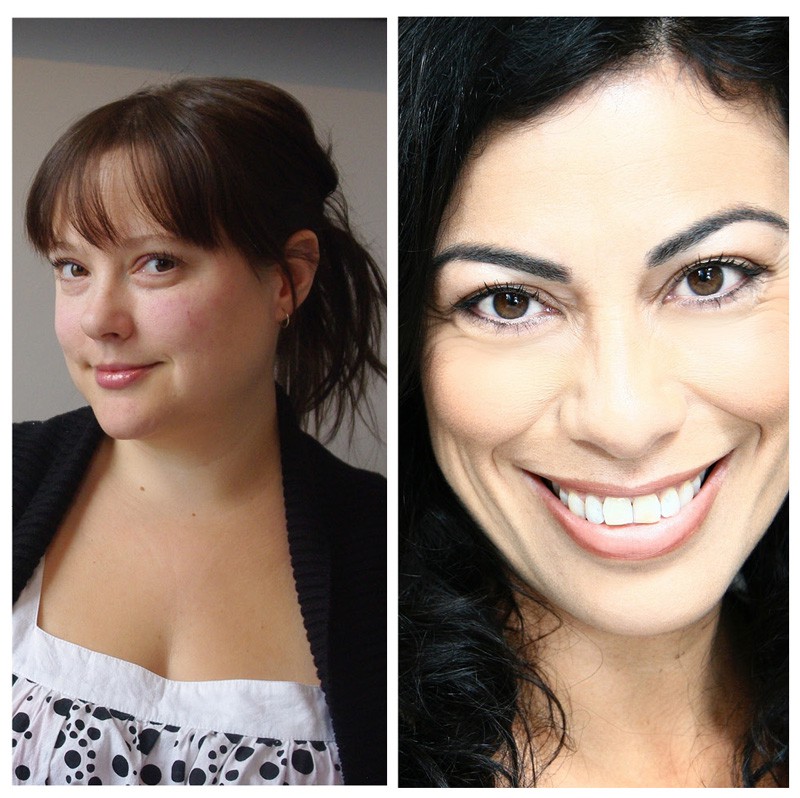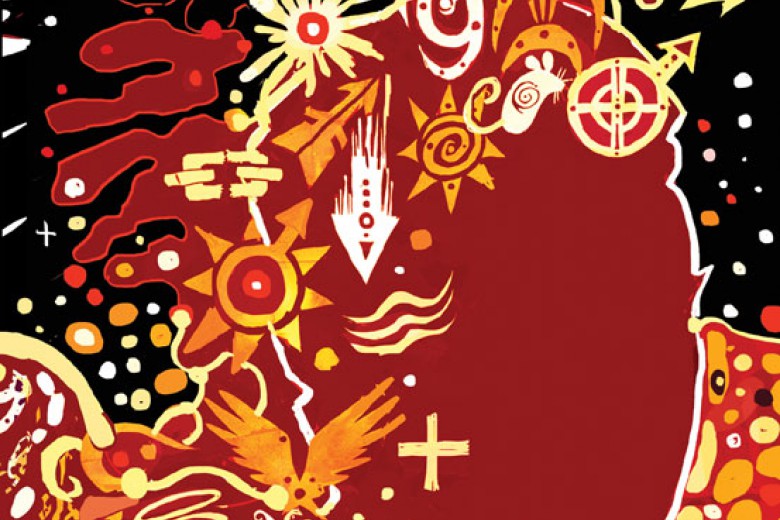
Now in its second year, Briarpatch’s Writing in the Margins contest seeks fresh, creative writing that brings to life issues of political, social, and environmental justice. This year our contest entries will be judged by award-winning writers Zoe Whittall and Carmen Aguirre. Briarpatch books columnist Yutaka Dirks caught up with our judges to talk about the writing life and finding the balance between the personal and the political as an author.
CARMEN AGUIRRE is the author of the best-selling Something Fierce: Memoirs of a Revolutionary Daughter. Aguirre has also written and co-written 20 plays, and is an actor, acting teacher, and theatre director.
ZOE WHITTALL is an acclaimed novelist and poet. Among her books are Holding Still for as Long as Possible and Bottle Rocket Hearts. Whittall is also the author of three volumes of poetry and edited the short fiction anthology Geeks, Misfits and Outlaws.
You were both established writers of poetry and plays for years before writing your first book. When did you first realize that Something Fierce and Bottle Rocket Hearts were the books you wanted to write, and why?
Aguirre: I first realized that Something Fierce was a book I wanted to write in the summer of 2003 when I was living in Los Angeles. My mother sent me a memoir written by a woman who had been in the Chilean resistance, and I devoured it of course. She had written her memoir in Spanish and she was of my mother’s generation. She spoke of what “the organization” did, not about what SHE did. I loved her memoir and I decided that it was time to write my own. Mine would be in English, it would be from the child’s point of view, I would speak about what I did, not what “the organization” did, and I would use dollops of black humour, which is indeed a very Chilean characteristic. I started to take notes that summer, and a year later my stepfather Bob Everton died. A few months before his death, he urged me to write the book. I was very lucky when Douglas & McIntyre approached me about publishing it when they saw the first chapter in the literary journal Brick.
Whittall: I sort of tricked myself into writing Bottle Rocket Hearts. I published two books of poems and had a collection of short stories that I sold to Cormorant Books, and in the process of editing them, one story just kept getting longer and longer. Finally my editor said, “Zoe, I think that you actually want this to be a novel.” I was so excited to develop it into a longer piece, but I don’t think I had the confidence to say, “I’m going to sit down and write a novel” from the beginning. I wasn’t sure if I could do it. Now it’s the form I enjoy working with the most. I knew I wanted to write about queer people, the queer punk scene, the riot grrl era, the 1990s in Montreal, the identity politics heyday, via these characters, but the actual novel-writing process was a bit of a circuitous journey.
Despite having many differences, those books have a few things in common; both are coming-of-age narratives, and political ideas and actions are integral to that arc. How do you see the relationship between the personal and political in your own writing, or that of other writers?
Whittall: I think that everything is political, even if you’re writing about something that doesn’t seem at all political. Maybe that’s a cop-out answer. I certainly never start out with any kind of message, and I try to not to be didactic. I hate it when I’m reading a book and I can tell the author was like, “politics first, character development second.” No one likes a lesson novel. I guess it’s just unfortunate that when I do choose to write about the people I know and love and my communities, it becomes political by that very fact, because the world is the way it is.
Aguirre: I agree with Zoe. Everything is political. How can it not be? I too refrain from writing any kind of message in my writing, and I wince when I see it in others’ writing. My writing has always been personal and political, because that’s what my life has been. I became a political refugee when I was six years old, and I was raised in exile. It doesn’t get more political than that.
Both of you have received tremendous accolades for your work. Carmen, you won Canada Reads last year, and Zoe, you won a Lambda award for Best Transgender Fiction in 2011. What has been the most surprising or encouraging thing to come out of the increased visibility for your work? What have you found the most challenging?
Aguirre: The most encouraging thing about winning Canada Reads is that it did indeed immediately translate to sales. It turned my book into a national bestseller, and people who would have otherwise never have read the book picked it up. I have never been interested in preaching to the converted; the fact that this award put my book on the radar of so many different types of people was beyond exciting. I have received hundreds of messages in the last year from people from all walks of life telling me how they connected to the book. It doesn’t get better than that. The most challenging part is making sure I respond to all those messages! In other words, time management.
Whittall: I get more mail from the U.S. now, from readers who type “transgender fiction” or “queer fiction” into their university library search engines and see my book come up. That’s awesome. The most challenging thing is that I used to think winning an award actually resulted in a serious jump in sales and visibility, and that hasn’t happened. Not to be too one-note about it, but nobody in the literary establishment puts much stock in queer book awards. It means something within the community but that’s about it. I love what it does – I’m not knocking it, and I’m honoured to have won.
Writing is often thought of as a solitary process – the writer hammering out her ideas alone and then releasing a finished manuscript to the world. How true is that to your experience as a writer? Can writing be a collaborative or social endeavour?
Whittall: It’s very solitary. Although I do sometimes host a writing group, and I share a lot of drafts as I write with friends who have work to swap. I like to go to cafés to work. I find the noise and bustle helps me to write, and to remember what things look like outside my house. Otherwise I end up giving my characters a lot of cats and they spend a lot of time talking to the cats, and then I know I have to go for a bike ride or a walk. There’s a café near my house where a lot of other writers work. I feel like they are my co-workers sometimes, the other writers and the 17 babies in strollers, all hanging out.
Aguirre: It’s not collaborative. It’s a completely solitary process. And I, like Zoe, seek out neighbourhood cafés to write in. I wrote Something Fierce in a corner of my house and at a local Italian café where other writers work as well. We would all nod at each other from our laptops and bitch about deadlines as we lined up to get our coffees while opera blasted from the loudspeakers and groups of Italian gentlemen discussed soccer and politics. It was wonderful.
For all those writers out there who are planning to enter the Writing in the Margins contest, can you share the best advice about writing you’ve been given?
Whittall: The amazing writer Marnie Woodrow once told me “Don’t think about publishing while you’re writing,” and I always think of that. And I’ve had the pleasure of listening to Wayson Choy speak many times, and one time he said, “Remember that editors aren’t your janitors – learn to use a comma.” That’s a paraphrase, but I think about that often when I get lazy at the end of a draft and can’t look at the page for another minute.
Aguirre: Use your own voice. You are enough. And to quote Pablo Picasso, “Inspiration exists, but it has to find you working.”
For details on how to enter Briarpatch’s Writing in the Margins contest, click here.




